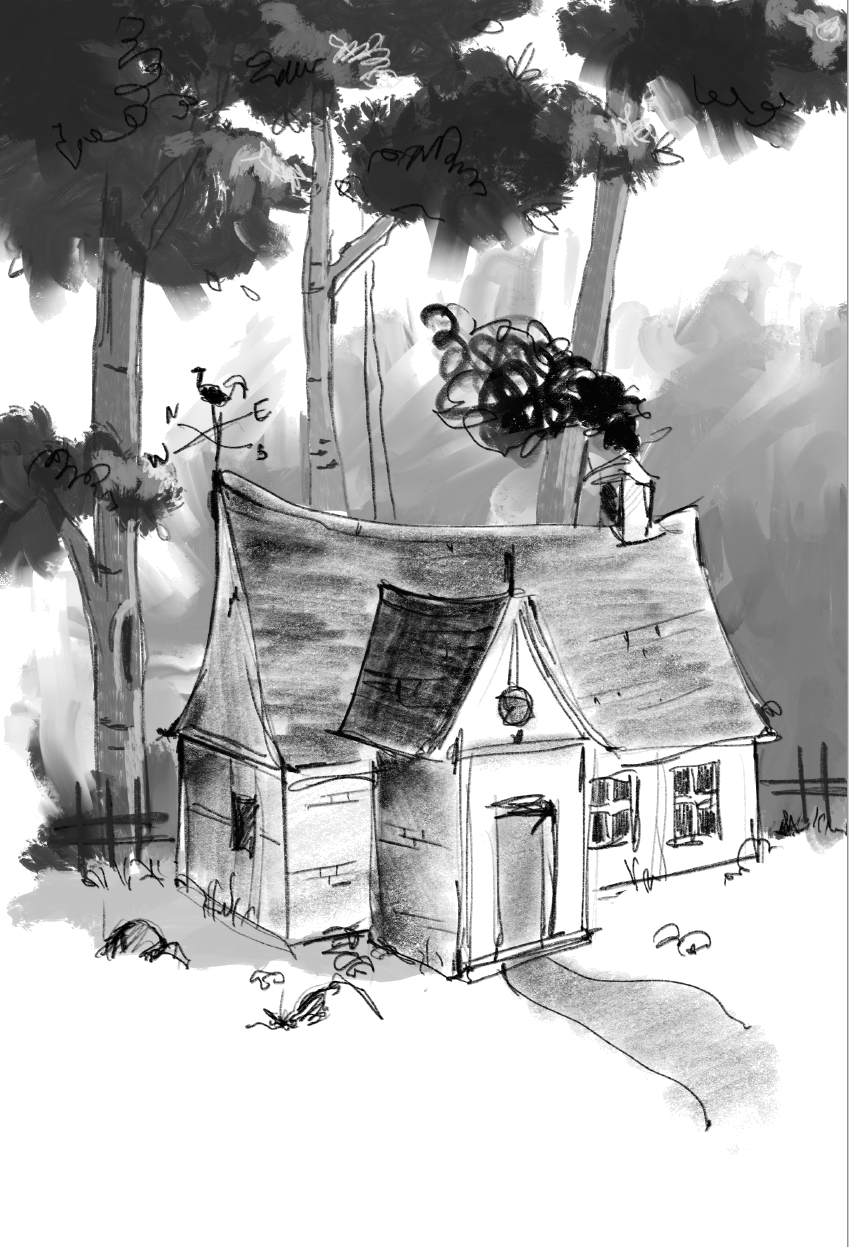
Zihao Lin
I don’t remember the first time I sneaked over the fence. I spent long hours in the tick-filled greenery along the creek, watching the meek trickling of water over the flat gray stones and the beer cans and the shopping carts. All those things seemed strange and wonderful to me.
My parents didn’t want me to go back there. It was my first disobedience; that day I realized they couldn’t stop me from going if I wanted to. I cut my leg on the metal fence as I clambered over it, let the blood drip hot onto the swampy creekside grass, crying not so much because of the pain, but because I’d have to tell my parents, and they would have been right.
We lived in a twin house. On the other side of our dividing wall was a beer-bellied man with overgrown hair and two sons. Our house was always crawling with roaches. My mother set up roach traps and hired an exterminator. Nothing worked; it was coming from the neighbor’s side. At random points in the day you’d hear a sharp, high-pitched cry, and you’d know my mom had found another one, solid, antlered, indestructible. They seeped through the walls in endless streams. I had nightmares about the floor crawling so thick with them I couldn’t ever leave my bed, with a shiny clicking carpet of cockroaches awaiting me below.
At dinnertime we sat around the table, knives, forks, plates and napkins set just so, to eat fish fingers and french fries from the freezer aisle. My parents played classical music on the radio and made us help set the table. I never minded. I liked fish fingers and french fries and the beer cans in the creek and even, oddly, the cockroaches, the thrill of them, how they’d appear in unknown places, unexpectedly, the lurking villain against whom we would inevitably prevail.
In third grade my desk was across from Adam’s. After weeks of pulling faces, he came over for a playdate. We hid in the tall bush next to the creek, in the mass of branches I’d torn out to carve myself a hiding spot. When I knew we were going to kiss, I shut my eyes tight. We touched lips once, then again, and I looked at his freckled face, feeling both older and deadened — the long-awaited moment, just skin against skin, then nothing.
At school Adam brought me a little ring with a fake ruby in the middle. “I’ll give you a real one someday,” he said as I slid it onto my right pointer finger. I showed it to everyone in class and then lost it after plunging my hand into my paper-filled desk and pulling it back out again, bare. I emptied everything out but there was no sign of the ring. It struck me as impossible; a solid perfect thing, stuck within the staticky confines of an elementary school desk, disappearing without a trace.
The boys next door were in middle school. One of them wore hats and lingered on the other side of the fence dividing our backyard, smoking cigarettes with his blue-haired friends. He was only nice when he rang our doorbell and sold sponsorships for his hockey team for 10 dollars, which my mom always bought. Once he and his friends threw knives over the fence, aiming for my dog. I don’t remember the mean boy’s name, or much else about him, except that lurch of fear in my stomach when I saw him on the other side of the fence.
His brother, Dave, had floppy blonde hair and didn’t talk much. I liked Dave. When I sat by the creek among the glass bottles I imagined him sitting beside me. One day I pulled a table from the basement into the front yard and sat there with my dad, pouring tea for him and my floppy doll Lydia. Dave slid out of his front door, skateboard in hand. “Come join us!” my dad called. My cheeks burned. Being in such close proximity made my fingertips pulse and my chest quiver. He sauntered over, removed his cap, and sat on a tiny plastic chair. Even then I knew this was one of those moments nothing else could subsequently live up to, the way he raised his pinky as he sipped his tea, indulging me with a private smile. It was early fall, Dave was looking at me, and this was my life, to the extent that I knew it.
The day we moved, I was at my friend’s house. When my dad picked me up, he took me back to my grandparents’, where we would be spending the summer until our new place was ready. I don’t remember anything about moving away except the moment when I realized I hadn’t said goodbye. I don’t remember packing boxes or sitting on the porch one final time or taking down the sunflower curtains in my closet-sized bedroom. One day I was sitting at a miniature table on the front lawn with Dave and my father, I was hiding with Adam in the bush, I was dipping my toes into my wonderful, polluted creek and then I wasn’t. I was somewhere else.
Sara Luzuriaga | sara.luzuriaga@yale.edu .







